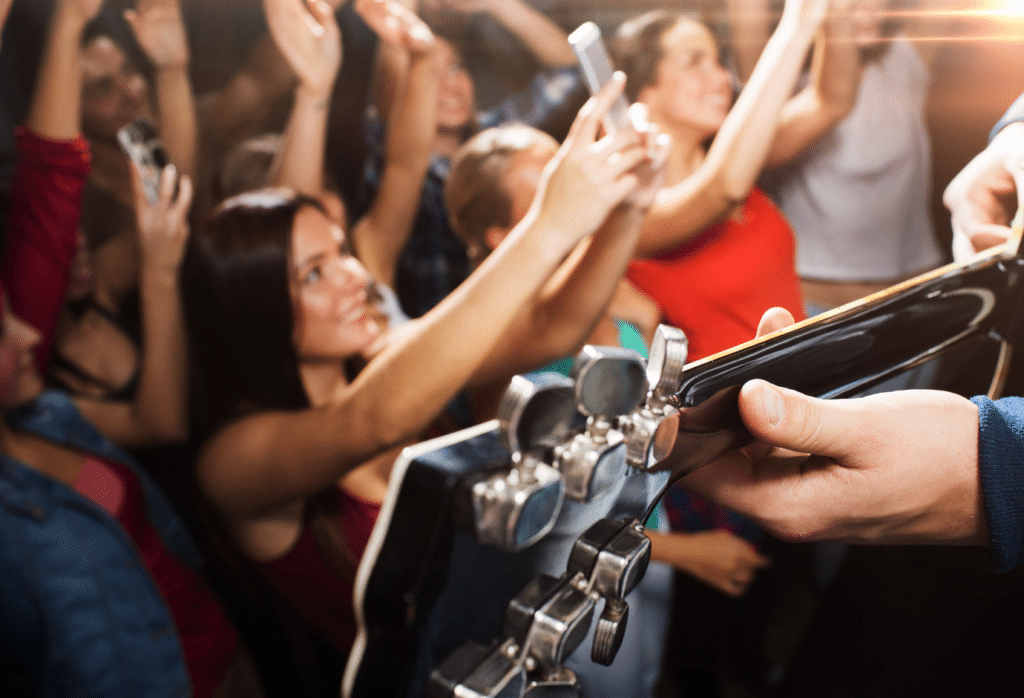Live music is a huge part of Melbourne’s cultural scene, yet a new study from Monash University has revealed that it’s not always a safe space for women.
The report, funded by the Victorian Department of Families, Fairness and Housing, and the City of Melbourne, surveyed more than 120 women (mostly white and cisgender, aged between 25-44) to find that 60 per cent of the them didn’t feel safe in the city’s most popular music venues in the suburbs of St Kilda, Collingwood, Brunswick or Flemington.
“Music workers and revellers say sexual violence is being normalised in Melbourne’s clubs and venues, and that groping and general harassment is common,” the study revealed.
The music workers interviewed include musicians, music writers, venue bookers and managers, security staff, government workers, policy advisers, non-government organisation workers, and music activists.
Eighty per cent of the respondents who had experienced sexual violence at a live music show said they never reported the crime — almost three quarters of the incidences occurring at venues that played rock music.
One music worker respondent relayed an incident where she was assaulted: “In the last incident of assault, I reacted by punching the guy. I was thrown out by security, after I explained what happened… The abuser also left in venue. I will never return to that venue.”
Lead researcher Dr Andrea Jean Baker led the study which investigated the realities faced by music workers across production, participation, education and the media.
“Sexual violence is rife in our music city,” Dr Baker said. “It disempowers music workers, deters others from working in it, and audiences to participate in our vibrant music scenes.”
“The report highlights the lack of awareness among music workers and audiences about the existing services and spaces designed to support them, and those willing to speak out came from a position of privilege, rather than marginalisation.”
Dr Baker added that her study is the first time a world music city has assessed the problem and looked for fresh solutions post-pandemic.
Respondents were found through a survey callout released across large music organisations in Melbourne, including APRA and AMCOS, Music Victoria, community radio stations, such as Radio Triple R, and Radio PBS, and the Rainbow Network, The Black Rainbow, Women with Disabilities, and Transgender Victoria.
Victorian Minister for Women Natalie Hutchins insisted that her state is committed to “lead the nation in gender equality reform and invest to end all forms of violence against women.”
“There’s so much more to do to improve women’s safety and this research will further inform that critical work,” she said.
One survey respondent who has worked in the music industry for 40 years, said that despite having to endure sexual harassment throughout her career and developing a “thicker skin” because of it, she is now demanding change.
“We had to brush it off in the 80’s as it was common place but there is still sexism in the workplace now and I no longer stand for it – maybe because I feel that it really is time for change,” she said.
Another respondent said that “…as an older woman in the industry, I am ridiculed on a regular basis by men.”
Yet another respondent said that conversations about sexual violence often “lead to denial from the perpetrator.”
“Some people don’t even realise they were sexually violent,” she said. “And in my experience it’s mostly from other musicians.”
The 124-page report makes five recommendations, including improved policies to address sexual violence, more phone counselling hotline services, gender and cultural diversity in music leadership and more effective bystander training for security staff.
Most respondents said male security staff at music venues and festivals needed more bystander training to prevent incidents of sexual violence, while one music participant in the survey said she wanted to see more “cultural safety training for all staff.”
The report also recommends that music festivals, record labels and radio stations be excluded from government grants and funds if they do not meet gender diversity, inclusion and equity criteria.
In late 2022, an independent review into sexual harm, sexual harassment and systemic discrimination in the contemporary music industry found that 72 per cent of women have reported experiencing some sort of workplace sexual harassment and harm, and that almost three quarters of perpetrators of sexual harassment were men.
The review also found a very low percentage of formal reporting of incidents — just 3 per cent of survey participants said they made a formal complaint for sexual harassment, while 6 per cent said they made a formal complaint when they encountered bullying in the past five years.
Stop the cycle of violence. If you are concerned about your behaviour, or about someone using violence, call Men’s Referral Service on 1300 766 491.
If you or someone you know is in need of help due to sexual assault or family and domestic violence contact 1800RESPECT on 1800 737 732
In an emergency call 000. Lifeline (13 11 14) and, for Aboriginal and Torres Strait Islander people, 13YARN (13 92 76)


